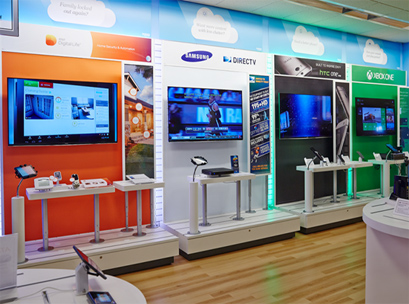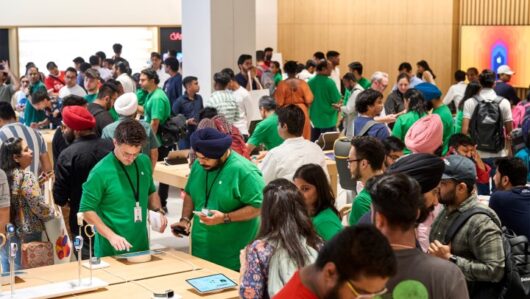 Struggling Sears seeks to buy time
Struggling Sears seeks to buy time
Sears Holdings Corp, the US holding company that is the parent of big-box retailers Sears and Kmart, is seeking funding to keep it afloat at least until January, when it plans to auction off some 400 of its best-performing stores and complete the closure of about 140 others.
Chairman Eddie Lampert is in talks with at least one potential partner – Cyrus Capital Partners – to contribute to a US$300 million ($424 million) bankruptcy loan, Reuters reports.
Sears filed for bankruptcy protection on October 15. Lampert’s hedge fund, ESL Investments, has invested billions of dollars in Sears, making him its largest shareholder and creditor.
Sears’ survival will depend on the willingness of creditors and suppliers to keep it afloat. Strong sales in the end-of-year holiday season will be key in determining that, putting pressure on the department store operator to secure enough financing to remain operational until then.
Shoprite joins plastic pushback
Shoprite Holdings, South Africa’s biggest supermarket chain, has joined in nationwide efforts by retailers to curb plastic pollution, saying it will now pay customers for reusing its newly introduced recyclable bag.
Shoprite said every time a customer reused its new 100 per cent recycled and recyclable plastic bag at its Shoprite or Checkers stores, they would get SA50¢ (5¢) off their grocery purchase. The bags retail for three rand (29¢).
The retailer added that packaging of many fruits and vegetables would switch to fully biodegradable and comfortable containers from early November.
South Africa does not have a law banning plastic bags. However, to reduce littering and discourage customers from buying them, it increased the plastic bag levy in April by 50 per cent to 12¢ (0.012¢) per bag.
Shoprite’s move comes just weeks after department store chain Woolworths Holdings made some preliminary moves against single-use plastic bags.
Marks & Spencer tops anti-slavery list
Major UK retailer Marks & Spencer has topped a list ranking Britain’s biggest businesses on their efforts to eliminate goods produced by slavery from their supply chain.
Supermarket Tesco and British American Tobacco ranked second and third on the first Global Governance FTSE 100 League Table, which judged firms based on their compliance with Britain’s landmark anti-slavery law and overall human rights practices.
Under Britain’s 2015 Modern Slavery Act, companies with a turnover of more than £36 million ($65.2 million) must produce an annual statement outlining the actions they have taken to identify and stop forced labour anywhere in their supply chains.
According to Sustain Worldwide, which facilitated the ranking, most of the companies on index were found to be largely compliant with the requirements of the law, however only one in four of the companies were fully in line with them.
Burger King, Tim Hortons fail to deliver
Canadian holding company Restaurant Brands International, the world’s fifth-largest fast-food chain, has posted a disappointing third-quarter profit of C63¢ (68¢) per share, compared with analysts’ average estimate of C65¢ (70¢).
Restaurant Brands controls Burger King and Tim Hortons, a Canadian icon famous for its doughnuts, which now has more than 800 outlets in the United States.
Despite a massive advertising push, Burger King has been struggling in a fiercely competitive US market against such longtime rivals as McDonald’s and KFC. Its US same-store sales declined 0.7 per cent in the quarter, compared with an increase of 4 per cent a year ago, while McDonald’s reported 2.4 per cent growth last week.
Sales growth at Tim Hortons remained sluggish, despite a C$700 million ($756 million) revamp. Its same-store sales grew 0.6 per cent in the third quarter, double that of a year earlier and up from a flat performance in the preceding quarter.
Buyers circle French Connection
Struggling UK clothing retailer French Connection says it has begun discussions with four interested parties regarding its possible sell-off, which it divulged earlier this month.
Once known for its provocative FCUK brand of clothes and accessories, the company has been in the red for six years. In September it reported that like-for-like sales in the UK and mainland Europe had fallen 7 per cent in the six months to the end of July. It lost just over £15 million ($27.16 million) in the period, compared with £5.9 million ($10.7 million) a year earlier.
At that time, it said it planned to shut a further eight stores. The company was founded by chief executive officer and chairman Stephen Marks in 1972, and is said to have a market capitalisation of more than £50 million ($90.54 million).
French Connection expects the formal sale process to conclude during the first half of 2019.
Target ups ante in shipping wars
US discount retailer Target is aiming to get the jump on its rivals, offering free two-day shipping on hundreds of thousands of items from November 1 to December 22 with no order minimum or membership required.
It is also adding more delivery and pickup options for online shoppers to have items shipped to their homes or ready for quick pick-up at local stores.
Target’s two-day shipping option certainly beats Amazon’s, which requires an annual subscription fee of US$119 ($168.16) under
its Prime membership service. Walmart already offers free two-day shipping, but only for orders above US$35 ($49.46). Target will also expand its drive-up service, which allows customers to place orders online and have packages brought to their cars. It will include nearly 1000 stores by the end of October.
It currently fulfills about half of its digital orders from inventory at its stores and plans to increase that to 90 per cent.





